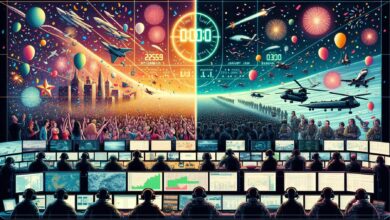Does military time impact our understanding of time zones?

In our connected world, understanding shared time is key. You might have heard of “military time” and wondered about its role in today’s time zones. We’re looking into whether the 24-hour clock, or military time, affects our global scheduling and time perception.
Military time is everywhere—in the military, aviation, healthcare. It’s vital for clear communication. But does it change how we see the world’s time zones, as global citizens? Let’s dive into how military time and time zones interact, to better understand our world.
Contents
Exploring the Basics of Military Time
When you learn about the 24-hour clock, also known as military time, you see its benefits. It makes timekeeping simple and aligns with global standards. It’s vital for those working internationally or traveling across time zones.
Understanding the 24-Hour Clock System
This system gets rid of AM and PM. It starts at midnight (00:00) and goes to 23:59. That brings clarity, especially where timing is key. It’s used worldwide in healthcare, aviation, and the military.
Differences Between Military and Standard Timekeeping
- Military time clearly separates hours, making communication more precise.
- The standard 12-hour clock, mostly in the U.S., needs AM and PM, causing confusion sometimes.
How Military Time is Used Globally
In many countries, military time is the norm. It helps keep things uniform, especially where exact times are critical.
- In Europe and beyond, the 24-hour system is often used both in writing and speech.
- For travel and computing, it ensures time is understood the same way worldwide.
The Role of Time Zones in Global Communication
In today’s connected world, the importance of international time zones in smooth global communication is huge. Managing time differences well is key for working together worldwide. Learning to navigate the complex global time zones is crucial for teamwork and business across countries.
Global businesses and international teams must master time differences. Here are tips for effective time zone management:
- Use world clock tools to track different time zones.
- Pick meeting times that work for everyone involved.
- Use 24-hour time to clear up any AM/PM mix-ups.
Time Zones and International Coordination
Time zones are key for setting deadlines and launching products worldwide. To better coordinate across time zones, consider these strategies:
- Check time zones before planning events as a standard procedure.
- Keep everyone updated with synchronized time management tools.
- Schedule overlap hours for real-time team collaboration.
Adopting these strategies improves global communication and makes processes smoother. It helps overcome challenges of international time zones. Knowing time zone differences is vital for success in our global world, from virtual meetings to multi-city conference calls.
Does Military Time Impact Our Understanding of Time Zones?
Thinking about global operations means understanding the importance of military time. The 24-hour clock, or military time, is widely used. It adds precision and clarity to global communication and coordination.
But, does it make converting time zones easier when dealing with international schedules? Let’s look at how it might change the way you manage time across different zones.
- Seamless Global Communication: Using military time helps avoid errors when converting times between zones. This accuracy is crucial for coordinating operations globally.
- Improved Error Reduction: The military time format removes the AM and PM confusion. This improves the accuracy of scheduling international meetings, flights, and broadcasts.
The change from standard to 24-hour time can be tough at first. Yet, using military time often can make global operations more efficient.
Imagine applying a 24-hour clock in your daily tasks. It could make converting time zones smoother. This understanding could improve your role in the global market. Whether it’s logistics, managing international projects, or virtual teamwork, knowing military time is beneficial.
Military Time and Its Effects on Daily Life
As you go about your daily tasks, you encounter different ways of keeping time. Have you thought about how using a 24-hour clock, like the military, could help schedule your day better? It’s not just about knowing the time, but organizing our time more effectively.
Adapting to Military Time in Civilian Schedules
At first, switching to military time might seem tough. But it’s actually simpler and helps civilians adapt easier. The 24-hour system removes the AM/PM confusion, making planning and global communication easier.
- Reduces ambiguity in daily scheduling
- Enhances accuracy for travelers dealing with time zone changes
- Improves clarity in work environments that collaborate across various time zones
Time Management in Military vs. Civilian Contexts
In the military, strict time management is key for all tasks and missions. Civilians using these methods can see better productivity and less stress. Areas like healthcare, which need timely precision, could greatly benefit from this approach.
- Understanding and planning your day with military efficiency could open up more leisure time.
- Adopting these practices can lead to better discipline in both personal and professional life.
Using military time in civilian life simplifies things and brings a new way to look at managing time. For scheduling meetings worldwide or just planning your day, military time principles can greatly improve your time management skills.
Comparative Analysis of Time Zone Interpretation
Getting to grips with time conversion from standard to military format boosts your global time know-how. This part digs into the usual bumps and learning moments faced while mastering this skill. This is especially true when juggling various time zones.
Challenges of Converting Standard Time to Military Time
Shifting from a 12-hour to a 24-hour clock brings its own issues. It’s more than just math; it’s a change in thinking. This change can cause mistakes if you’re not careful. Let’s look at common errors:
- Misinterpreting hours post-noon as morning times, which can disrupt scheduling.
- Forgetting to convert AM/PM properly, leading to misunderstandings in global communications.
Thankfully, there are tools and apps that do the time converting for you. They help keep things precise, no matter the time zone.
Military Time Conversion in a Time Zone Context
When dealing with folks around the world, military time makes things simpler. It helps clear up your communication and cuts down on mistakes. Here’s why using military time is smart in international circles:
- Clarifies communication by eliminating ambiguity between AM and PM.
- Facilitates scheduling across different time zones without the need for excessive calculations.
But tools aside, getting a good grasp on converting times yourself is handy. Try converting times in your head as you see them during your day.
Conclusion
We’ve explored how military time changes our understanding of global schedules and time zones. This key information shows that military time is more than just tracking hours. It links people across different places. Military time fosters a shared understanding, playing a key role in sharing knowledge across time zones.
From our discussion, you see the value military time adds, especially in global timekeeping. It ensures clear communication in aviation and the military. The 24-hour clock promises clarity and consistency. It’s crucial for international cooperation, making our connected world run smoothly.
Think of military time as a universal language for timekeeping. It aims to make global schedules simpler and calls for a worldwide approach to managing time. Adopting it could improve global communication and collaboration. Your grasp of time zones has now deepened, thanks to military time.



